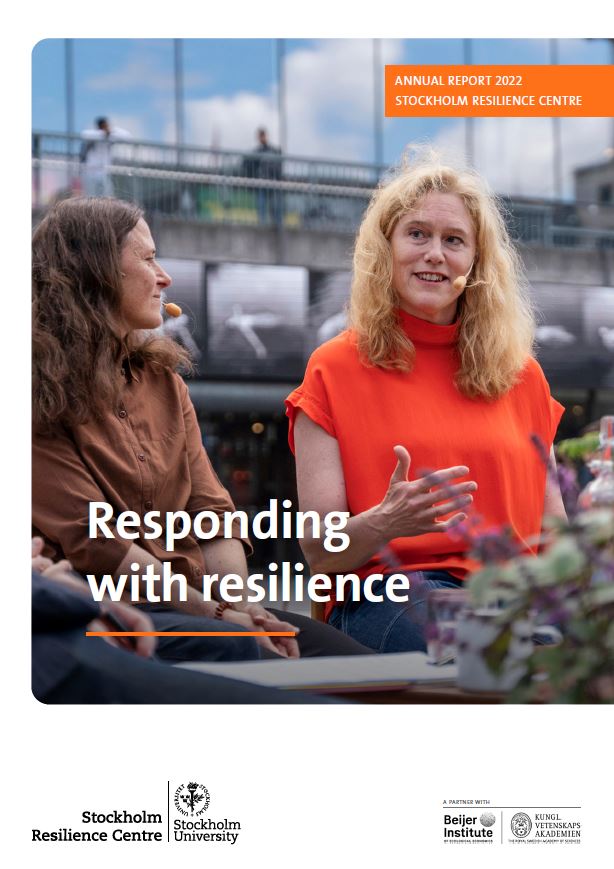Annual reports
Explore our annual report for 2022
.jpg)
Photo: Johannes Ernstberger/Stockholm Resilience Centre.
The Stockholm Resilience Centre continues to grow stronger as an organisation and in influence
- The Centre moved to new offices at Campus Albano
- Researchers contributed to key policy arenas at Stockholm+50, COP27 and COP15
- Four new professors were appointed during last year
“The reader of this annual report will enjoy discovering the amazing progress during the year performed by all those involved with the Stockholm Resilience Centre. It is an impressive account, a manifestation of the professional and collaborative trust-based working culture of the Centre, beautifully conducted by the Centre’s leadership,” states chair of the board Carl Folke in his preface to the report.
2022 was an eventful year. We managed to navigate a somewhat dramatic staff retreat on Gotland (read more in the director’s view on page 5), published highly-cited research, and grew in terms of annual turnover and number of staff.
Or, as Centre director Line Gordon puts it in the report: “Our organization is amazing and resilient.”
And of course, we moved! Since August last year, we are located at the new Campus Albano in modern, spacious offices with beautiful views over the lake Brunnsviken.
Our organization is amazing and resilient.
Centre director Line Gordon
2022 was also a very active year in policy arenas. Centre researchers helped frame the narrative at a number of big UN conferences, including the UN Ocean Conference, Stockholm+50, the climate COP27 and the biodiversity COP15 – which ended with a landmark agreement.
We contributed with scientific knowledge to all these processes, through background reports, new scientific findings and policy reports.
We also initiated more than a dozen new research projects and kickstarted another major research programme funded by Mistra: FinBio.
“We see an increased demand for our science, and from a more diverse landscape of actors across society,” states Centre director Line Gordon in the annual report.
The teaching team at the SRC continued to grow both in terms of the numbers engaged in teaching and in the development of our teaching portfolio. An educational highlight of the year was a two-and-a-half-day methods hackathon which resulted in a website that gives an introduction to different methods used in social-ecological research.
We see an increased demand for our science, and from a more diverse landscape of actors across society.
Centre director Line Gordon
In the annual report, you also get to know three of our researchers a bit closer: Nanda Wijermans, a social-ecological modeller who combines nerdery with teamwork; Thomas Elmqvist, who looks back on a long career in the ever-changing field of ecology; and Frida Bengtsson whose love for the ocean has taken her to both poles and finally to a PhD position at the Centre.







